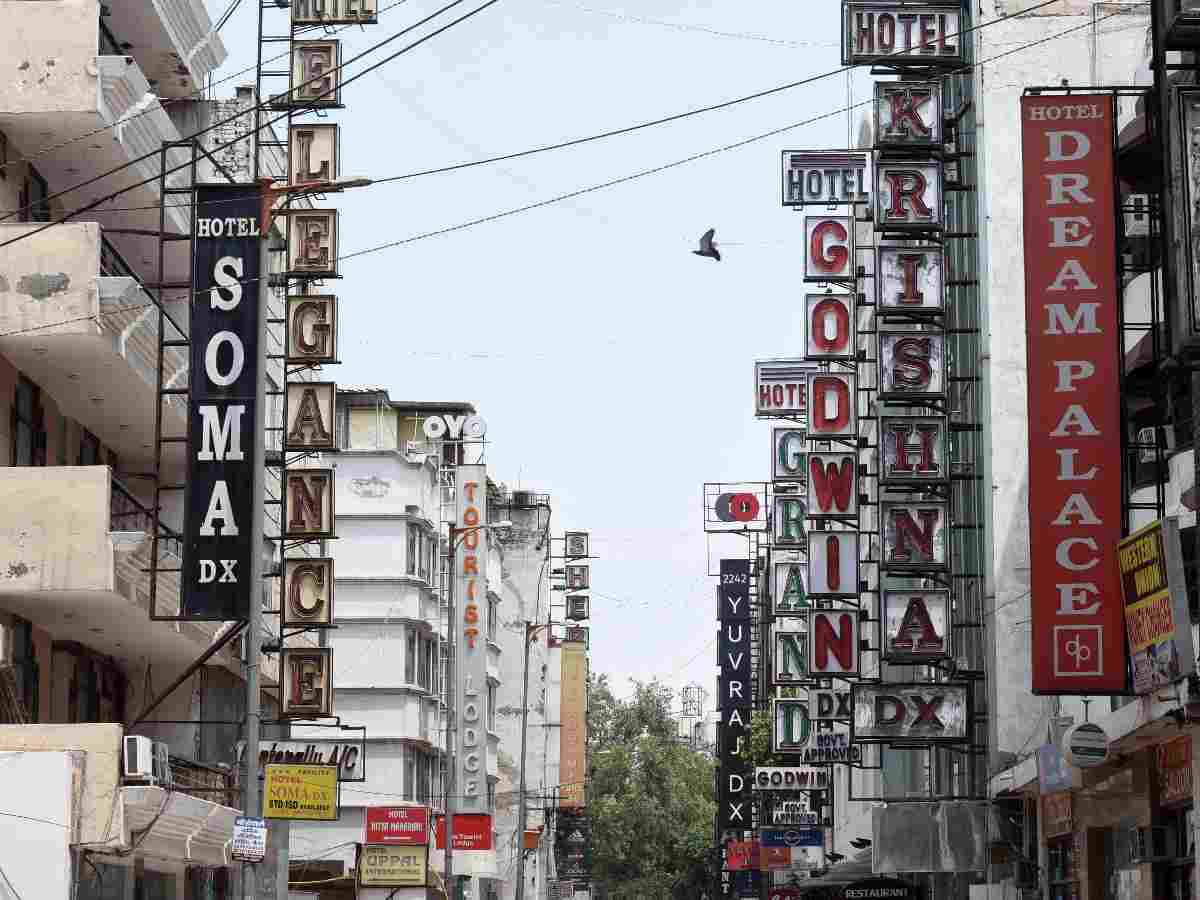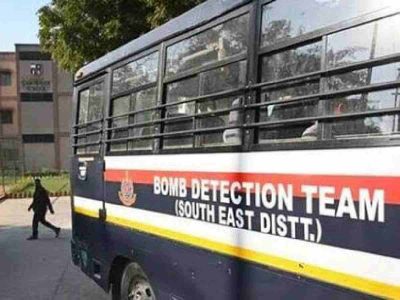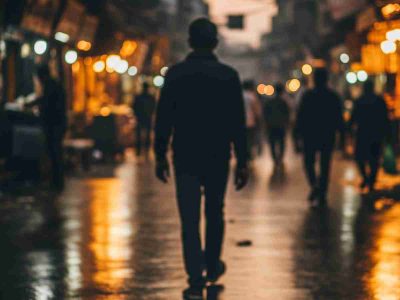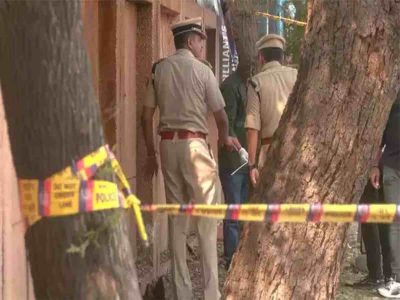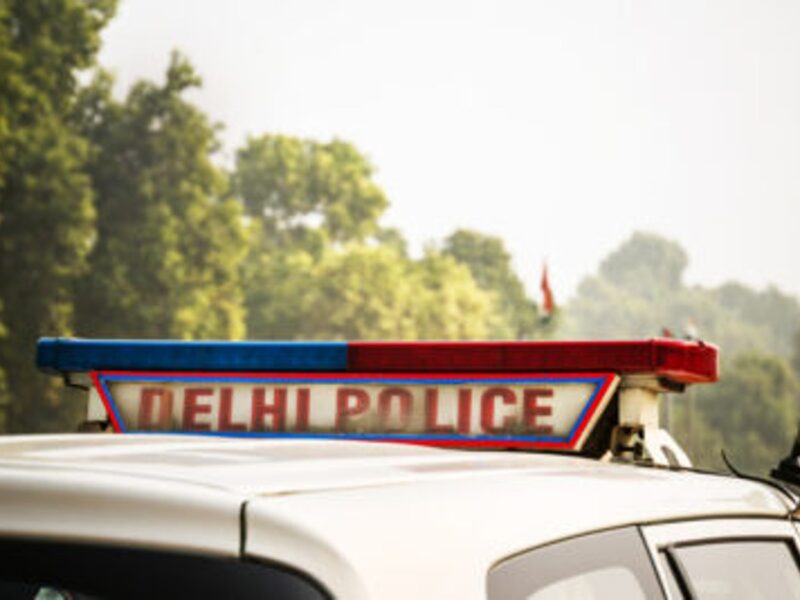In early April, as the heat waves started to hit Delhi, Paharganj awoke to a frightening sight as crowds rushed in to observe a Nepali national standing on the parapet of a hotel. The sight caused many to halt in their tracks.
Nothing could have prepared them for this event in the early hours of the morning.
According to the police, the visitor had taken up residence at a hotel. His motive was fairly clear, though nobody could guess what it was on the first glance.
As the night turned to day, he sliced his throat open in a vain attempt to end his life. Armed with a blade, he flung it across threatening everyone in sight. However, not even the bravest could stop him as he sauntered onto the roof of the lodge which lay in one of the many alleys of the Capital’s budget hotel district.
Climbing up the parapet, he readied himself to jump off. But one bystander dared to climb up the stairs and managed to pull him down.
However, the Nepali national was declared dead on arrival at the hospital where he was taken in an ambulance.
This wasn’t a one-off incident in the area. Since January, the Paharganj Police Station has recorded five cases of suicide, with three of the instances being recorded in April itself and one each in January and February.
According to data sourced from Central district, there have been 25 instances of suicide in the area, with Anand Parbat Police Station recording the highest at nine.
However, the Nepali national has not found a mention under the statistic.
Why are certain instances not considered under suicides?
According to police officials, only those cases where notes are left by the victims are included as suicides.
“Legally, it is impossible for us to ascertain if a death is a suicide without a note. An instance may look like suicide but we need prima facie evidence to call it one,” said the senior official. Accordingly, these instances of suicide are considered under the umbrella term of unnatural deaths.
Officials at the Nabi Karim Police Station under whose jurisdiction the suicide had taken place, shared that as many as seven cases have been considered as unnatural deaths. These were not considered as suicides owing to the lack of a note.
Also Read: Delhi Water Crisis: DJB emergency services stretched, drivers work 24 hours a day
Although, officially, suicide remains missing in the statistic, the memory of the sight lives on among the residents and shop owners near the hotel. Many of the workers around the area said that such situations were commonplace with many visitors coming to the area to end their lives after becoming a part of a deal gone wrong.
“The situation around Paharganj is not the best. There is barely any police activity, even patrolling in the area is minimal to say the least,” said Mohit, 24, a gatekeeper at an OYO registered hotel in the area.
He added that the death of guests inside their rooms is not unfounded as it happens frequently.
“Many times the police does not arrive either to seize the (dead) body,” he said.
A similar situation unfolded near Hotel Silicon International. Shop owners complained about the police vehicle arriving almost 30 minutes after the PCR call made by them.
“The police arrived almost 30 minutes late. We had already called them up when the hotel guest started flailing his blade around. It is not the first time that something like this has happened,” said Ravi Das (name changed), a shopkeeper near the hotel, who was one of the first persons to reach the site.
Section 174: The Rule that Governs Unnatural Deaths
Unnatural deaths are reported whenever a victim does not die of natural causes, and dies of suicide, accident, surgical mishap, murder, or other such instances.
Section 174 of the Code of Criminal Procedure (CrPC) deals with unnatural deaths. It states, “When the officer in charge of a police station or some other police officer specially empowered by the State Government in that behalf receives information that a person has committed suicide, or has been killed by another or by an animal or by machinery or by an accident, or has died under circumstances raising a reasonable suspicion that some other person has committed an offence, he shall immediately give intimation thereof to the nearest Executive Magistrate empowered to hold inquests, and, unless otherwise directed by any rule prescribed by the State Government, or by any general or special order of the District or Sub-divisional Magistrate, shall proceed to the place where the body of such deceased person is, and there, in the presence of two or more respectable inhabitants of the neighbourhood shall make an investigation, and draw up a report of the apparent cause of death, describing such wounds, fractures, bruises, and other marks of injury as may be found on the body, and stating in what manner, or by what weapon or instrument (if any); such marks appear to have been inflicted.”
According to the CrPC, the following instances have been considered as unnatural deaths — suicide, death by a person, death by an animal, death by machinery, or accident, or any death that raises reasonable suspicion that some other person has committed the offence.
The three instances in April were recorded within the space of almost a week. However, more importantly, the hotel district of Paharganj has recorded multiple cases of such deaths during the first five months of this year which have gone unnoticed to the public eye.
To put matters into perspective, of the five deaths, four were of residents from other states including Himachal Pradesh, Maharashtra, Madhya Pradesh, and Uttarakhand. Only one recorded death was of a Delhi resident from the Central district.
What makes Paharganj the hub for such deaths?
Police officials from the Nabi Karim Police Station underlined that there have been multiple instances of death in the area, especially under unnatural circumstances.
“The hotel district is technically speaking a hub for a lot of criminal activities, including trafficking, extortion, murders, and the like. Sometimes, especially considering trafficking and extortion, nobody files a complaint which makes it difficult for us to take action against them. Most are scared of defiling their reputation, concerned about how it will reflect on their character,” a senior official said.
He added that such instances keep happening in the hotel district because of a lack of unions and lackadaisical approach to verification of guests.
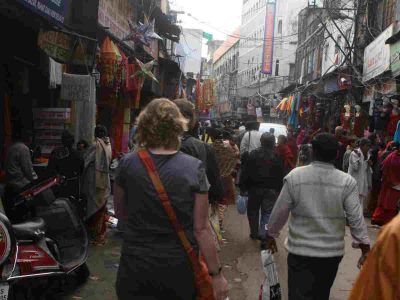
“According to the law, all of the hotels should verify their guests’ identities but most of the hotels bypass this by taking some additional money to accommodate them. On the other hand, sometimes they take money at check-out and then verify their identity,” said the official.
One of the hoteliers in the area highlighted that a lack of guest verification was not unheard of in Paharganj.
Hotels inside alleyways were don’t usually hesitate in providing accommodation to guests sans identification.
“They feel that it is unnecessary to bother others with identification. It is technically a win-win situation for both the hotel and the guest. The former gets to make more money and the latter can easily come and go as they please. More often than not, none of the guests stay for longer than a week at maximum,” he said.
In November 2023, a 50-year-old Comptroller Auditor General of India employee died by suicide in one of these hotels at Paharganj. The CAG employee had checked in at noon and informed the receptionist that he would be leaving by nine at night. Yet, by 10 pm nobody opened the door till the fire services personnel were called who broke open the door to find his hanging corpse.

